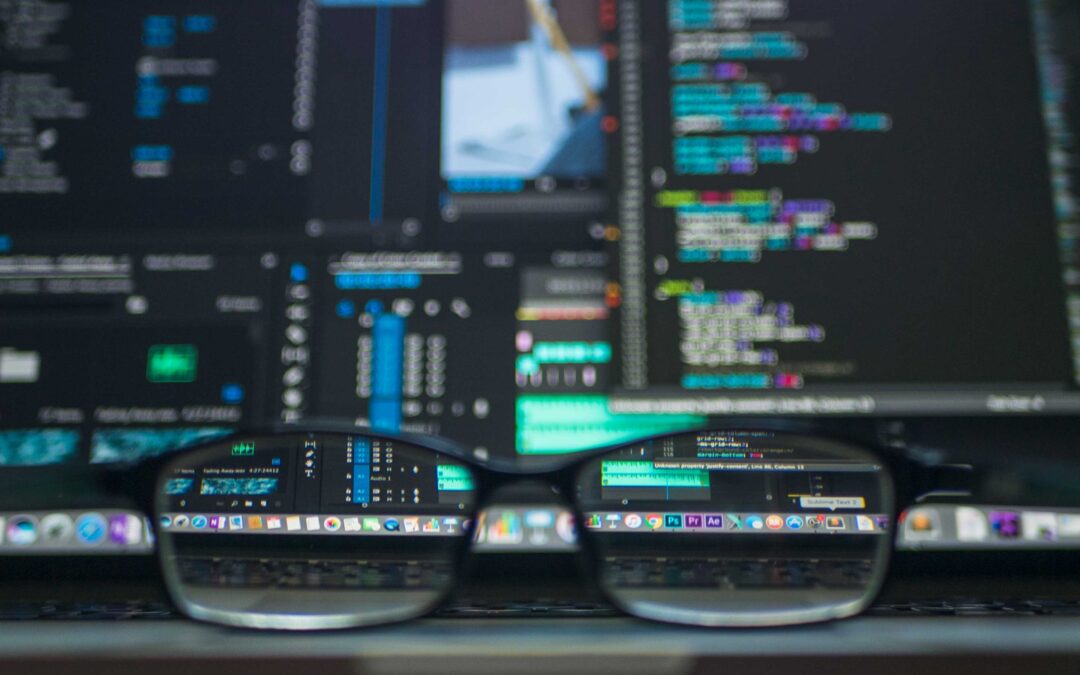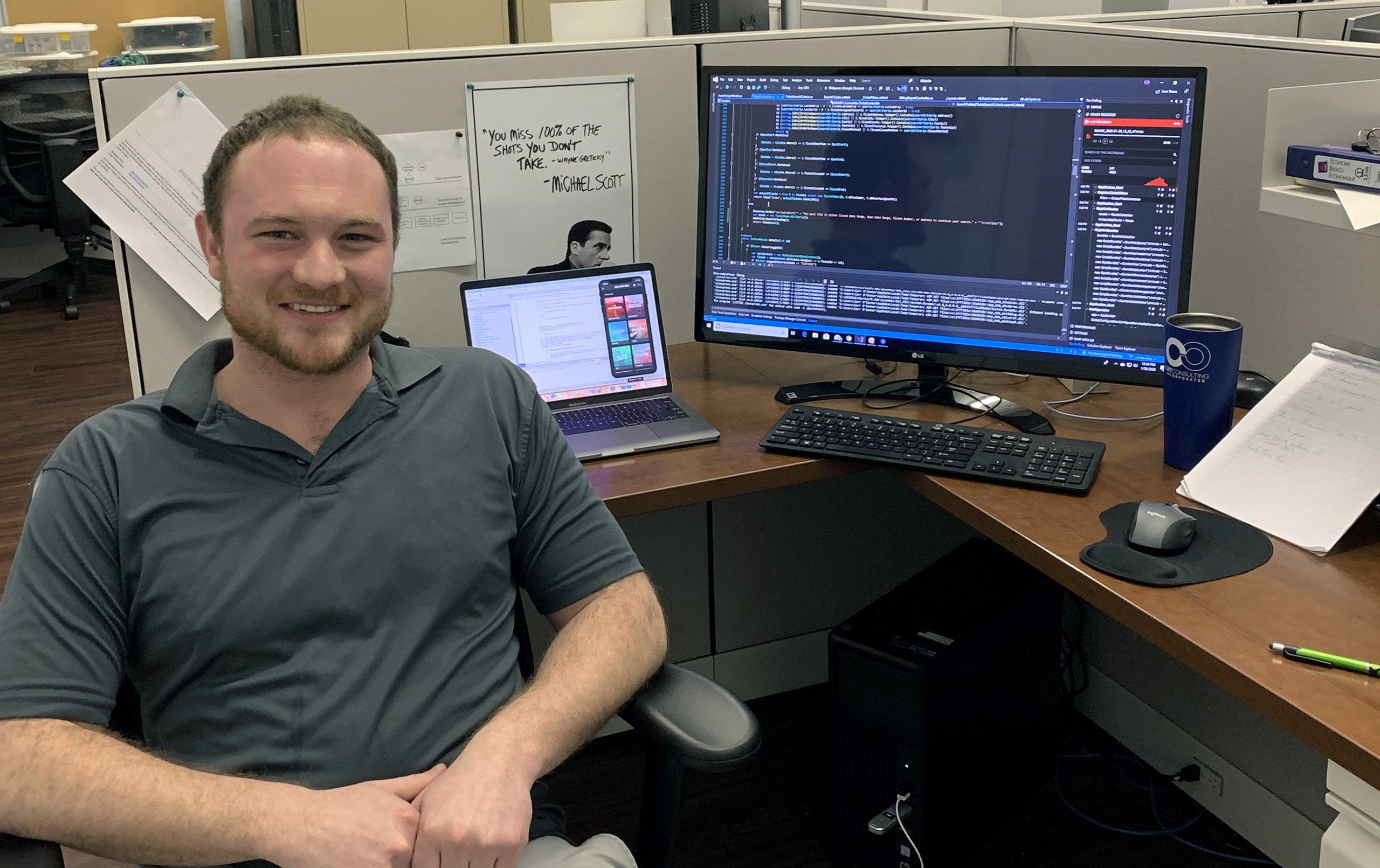The Matrix blew our minds in 1999. The idea that we are all part of a huge simulation and living in a binary code was unique and startling. I often joke about our custom software development team being “in the matrix.” They spend most of their days in front of multiple screens typing things that look like jumbled words and punctuation marks to the average person. But when it’s compiled, it is an amazing piece of custom software that brings someone’s ideas to life for the very first time.
I recently had the opportunity to sit down with our Development Team and talk with them about their daily tasks, the language they use to code custom software, and where the future of software may be headed. Here are some of the highlights from the conversation with Jon Crawford and Adam Thompson, our team of developers.
How did you decide on software development as a career?
Adam: “I knew from pretty early on. From a Commodore64 bought with detasseling money to a 5 1/4 floppy drive, I always had an interest in computers, and it was awesome to be able to create new things. I liked the idea of building things that helped people solve a problem or do something they couldn’t do before.”
Jon: “I was always interested in computers, I loved playing around and I taught myself the command line. Then I started playing with HTML and learned how to make my blog cooler than everybody else’s. I didn’t have a clear career path, so I went to 1150 Academy looking for clarity. Ultimately, I love being creative, building things, and solving problems. To be able to create something that didn’t exist is a lot of fun.”
What is a coding language and why are there so many?
Coding language is a way to tell the computer what it’s supposed to do and in what order. It’s a way to express what you want the computer to do. The computer will only do what you tell it to do, so you’ve got to find a way to express that.
There are so many varieties of language because some languages are better at accomplishing specific tasks. Some are more loose on how you organize the code, some are more linear. For instance, the code that tells your computer to type the letter “a” when you touch that key on your keyboard is far cleaner and less abstract than the code that tells your high-end video games what to do in an open world.
How have you worked to learn and remain sharp as tech has changed?
The technology landscape is always changing, so if you fear change and don’t like learning things, you should avoid software development. Ultimately, the key is to keep it practical, learning what’s useful for what we want to build, and then getting proficient in that language.
What makes C# the coding language of preference?
C# is a Microsoft language that is maintained and well-supported, well known by other developers and is open source, and it allows you to write it once and use it everywhere – web, Android, MacOS, Windows OS, iOS.
For some of our largest projects, we have chosen C# because it is well-supported, it’s the industry standard, and it’s easy to bring others in or find information in knowledge bases to help. In addition, when using C# Visual Studio, a lot of the frustrating errors in the tedious portions of programming are caught ahead of time. That combination of language and software provide feedback as you write the code so you don’t often have a small mistake that ruins the whole code or requires you to find the needle in a haystack.
What do you think the future holds for coding and programming?
AI is a wild new frontier. AI is creating the potential for us to code in plain English. In addition, even right now, the pure speed by which AI can help build a boiler plate is amazing, and we can only assume it will get better, faster, and more effective.




Recent Comments